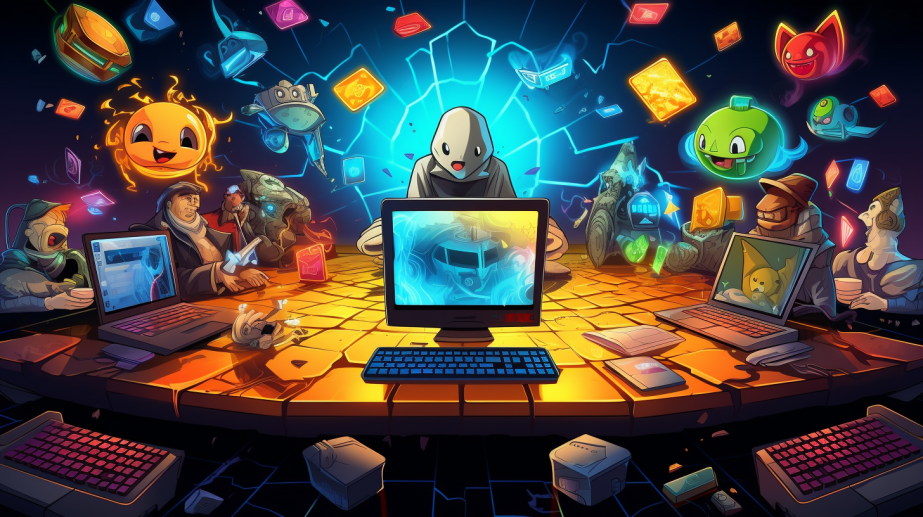Blockchain technologies have been on the rise for a decade. Their power-changing infusion with gaming industries is now transforming the conventional gaming industry for players. The concept of ‘crypto-gaming’ combines the gaming world with cryptocurrency power with power-changing capabilities.
In this article, let’s familiarize you with the potential advantages of cryptocurrencies and blockchain technology in the new gaming industry.
Bridge-Building using Gaming Tokens
The development of distinctive in-game items and currencies is made possible by blockchain technology, frequently in the form of utility tokens and non-fungible tokens (NFTs). These tokens might completely change the way players trade, buy, and engage with virtual goods. A lot of attention has lately been paid to NFTs, which signify ownership of a particular digital asset.
NFTs allow gamers to own the virtual goods they use to play genuinely.
NFTs provide players complete authority and ownership over anything they choose, whether an unusual weapon skin, a special character outfit, or even a virtual piece of land.
Players may exchange these NFTs between other video games and technological platforms, establishing a new virtual economy.
A Game-Changing Concept: Play to Earn
Blockchain brings the idea of “play-to-earn” to the gaming industry. In conventional gaming, participants spend both time and resources on a game with no prospect of a financial return. Blockchain technology, on the other hand, has now allowed gamers to participate in games to win bitcoins and continue their streak.
Games like Axie Infinity depict the popularity of blockchain in the gaming industry.
How?
Axies are imaginary animals that players in Axie Infinity capture and breed.
These Axies are NFTs available for purchase, sale, and fight.
By defeating opponents while using their Axies, players may get the cryptocurrency “Smooth Love Potion” (SLP).
The ability to convert SLP into real money makes earning money while playing games possible.
Players in areas with lower average earnings find this play-to-earn model especially intriguing since it provides a new method of earning money and getting good financial returns.
Scarcity and Increased Ownership
The idea of actual digital ownership and scarcity is one of the prominent and distinctive features blockchain offers in the gaming industry. In conventional games, users don’t own the things; they are kept on centralized servers. Many times, the goods are permanently lost if a game crashes.
Blockchain has brought changes to this model:
NFTs and blockchain-based objects are kept on a decentralized ledger to ensure their independence from the game’s servers.
In other words, players still own their items in-game even if a game is no longer played.
To create a sense of scarcity and uniqueness, developers might cap how many of a certain character or item are accessible.
Final Thoughts
A considerable cryptocurrency and gaming company integration provides true ownership, additional income alternatives, and enhanced gaming experiences. Currently, the blockchain technology has gained support within the gaming sector. Blockchain is prepared to transform the future of the game business as developers concentrate more on integrating this innovation.



